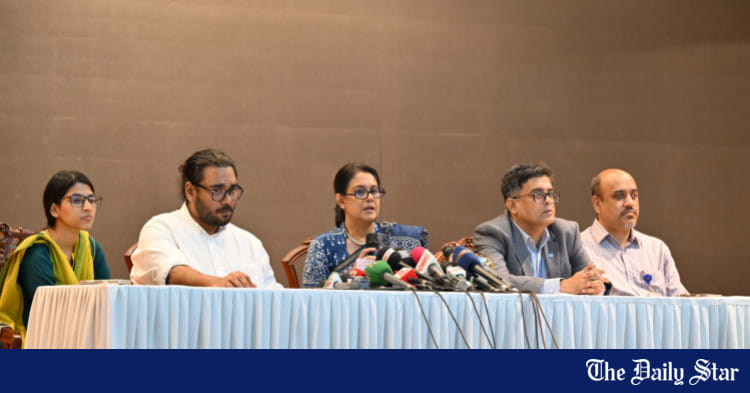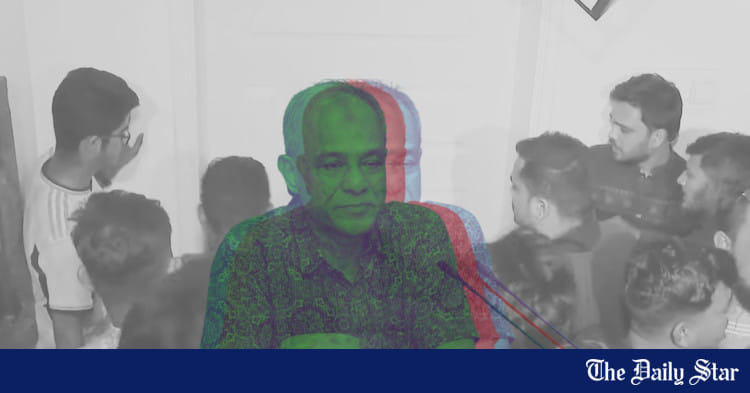- Copy to clipboard
- Thread starter
- #16
Saif
Senior Member
- Messages
- 14,106
- Reaction score
- 7,446
- Origin

- Residence

- Axis Group


Combing operating: No criminal should get away
Improving law and order is essential to ensuring the safety to citizens and their property, as well as keeping the economy running smoothly.
Combing operating: No criminal should get away
Editorial Desk
Published: 01 Mar 2025, 13: 48
The joint forces on the night of 25 February launched a combing operation against criminals in Dhaka. Adviser of the Ministry of Home Affairs, Lieutenant General (retd) Jahangir Alam Chowdhury stated that afternoon, “You will understand the situation after dusk.” There may be debate regarding whether law and order has improved over the last few days, but it can be asserted with certainty that the situation has not worsened. According to words of the home adviser, the criminals have, to some extent, felt the impact.
According to reports from Prothom Alo, citing the Dhaka Metropolitan Police (DMP), 793 individuals have been arrested in the capital as part of the ongoing operation. During this period, DMP set up 65 checkpoints and deployed 550 patrol teams. As part of Operation Devil Hunt, which started on 8 February, more than 11,000 individuals have been arrested over the past 19 days.
Since the start of the operation, DMP has been providing daily updates. Prior to this, the home adviser set a precedent by holding a press conference at early hours of 3:00 AM. Subsequently, adviser Asif Mahmud also briefed journalists at night, providing updates on the law and order situation.
Although there had been no significant visible improvement in law and order in recent days, incidents of mugging and robbery have decreased. The criminals who once instilled fear in neighbourhoods are now living in fear themselves. Many are fleeing. The duty of law enforcement agencies is to track them down, regardless of where they attempt to hide and bring them to justice.
The holy month of Ramadan is approaching. During this period, movement at night is expected to increase due to shopping, iftar gatherings and sehri preparations. Consequently, the risk of mugging, robbery and theft will also rise.in this context, night-time operations must be intensified during Ramadan.
One crucial point must be emphasised. The success of the operation cannot be measured solely by the number of criminals been caught. Those who remain at large must also be tracked down. No area should be left unchecked, intensifying operations in some locations while relaxing in others. If coordinated operations are conducted nationwide, criminals will inevitably be brought to justice.
In the past, such operations have failed due to political interference. On several occasions, individuals arrested as criminals were later found to be affiliated with the ruling party, leading to their release through the exertion of influence. However, as the current government is entirely apolitical, it should have no vested interest in protecting any particular group. Every case must be investigated impartially and thoroughly to ensure that no innocent person is subjected to harassment, while no actual offender escapes justice.
Improving law and order is essential to ensuring the safety to citizens and their property, as well as keeping the economy running smoothly.
Without progress in law and order, it will also be challenging to fulfill the interim government’s commitment to holding elections, as promised to the public. In addition to the Ministry of Home Affair’s Adviser, we have seen another Adviser express concern ovr the security situation.
It is hoped that all relevant ministers will step forward from their respective positions to address these issues. At the very least, senior officials of DMP should not limit their role to issuing directives but should also conduct on-site inspections to oversee the operations directly.
Editorial Desk
Published: 01 Mar 2025, 13: 48
The joint forces on the night of 25 February launched a combing operation against criminals in Dhaka. Adviser of the Ministry of Home Affairs, Lieutenant General (retd) Jahangir Alam Chowdhury stated that afternoon, “You will understand the situation after dusk.” There may be debate regarding whether law and order has improved over the last few days, but it can be asserted with certainty that the situation has not worsened. According to words of the home adviser, the criminals have, to some extent, felt the impact.
According to reports from Prothom Alo, citing the Dhaka Metropolitan Police (DMP), 793 individuals have been arrested in the capital as part of the ongoing operation. During this period, DMP set up 65 checkpoints and deployed 550 patrol teams. As part of Operation Devil Hunt, which started on 8 February, more than 11,000 individuals have been arrested over the past 19 days.
Since the start of the operation, DMP has been providing daily updates. Prior to this, the home adviser set a precedent by holding a press conference at early hours of 3:00 AM. Subsequently, adviser Asif Mahmud also briefed journalists at night, providing updates on the law and order situation.
Although there had been no significant visible improvement in law and order in recent days, incidents of mugging and robbery have decreased. The criminals who once instilled fear in neighbourhoods are now living in fear themselves. Many are fleeing. The duty of law enforcement agencies is to track them down, regardless of where they attempt to hide and bring them to justice.
The holy month of Ramadan is approaching. During this period, movement at night is expected to increase due to shopping, iftar gatherings and sehri preparations. Consequently, the risk of mugging, robbery and theft will also rise.in this context, night-time operations must be intensified during Ramadan.
One crucial point must be emphasised. The success of the operation cannot be measured solely by the number of criminals been caught. Those who remain at large must also be tracked down. No area should be left unchecked, intensifying operations in some locations while relaxing in others. If coordinated operations are conducted nationwide, criminals will inevitably be brought to justice.
In the past, such operations have failed due to political interference. On several occasions, individuals arrested as criminals were later found to be affiliated with the ruling party, leading to their release through the exertion of influence. However, as the current government is entirely apolitical, it should have no vested interest in protecting any particular group. Every case must be investigated impartially and thoroughly to ensure that no innocent person is subjected to harassment, while no actual offender escapes justice.
Improving law and order is essential to ensuring the safety to citizens and their property, as well as keeping the economy running smoothly.
Without progress in law and order, it will also be challenging to fulfill the interim government’s commitment to holding elections, as promised to the public. In addition to the Ministry of Home Affair’s Adviser, we have seen another Adviser express concern ovr the security situation.
It is hoped that all relevant ministers will step forward from their respective positions to address these issues. At the very least, senior officials of DMP should not limit their role to issuing directives but should also conduct on-site inspections to oversee the operations directly.










